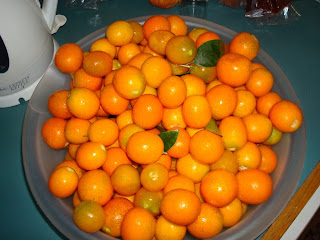An Epiphany Poem
In a bar called “The Stable,” owned by Prophet and King
A shepherd plays piano and lounge-angels sing
You beckoned me over and bought me a beer
Malted tradition, fermented good cheer
I have to admit, you didn’t have looks
Your cheeks had the pallor of a face stuck in books
But to woo a man lonely in seasons like this
Just say, “I’ll be with you,” and I hear pure bliss
So I sat down beside you and picked up the glass
Of bourbon, a babe who was kept by an ass
The liquor was love, a kind I’d not tasted
How easy, on this stuff, ‘t’would be to get wasted
The holiday hooch went down smooth, then a double
I turned from my thought that your looks would pose trouble
And saw with new eyes, filled with joy and adoring
As the lounge-angel sang with glorias soaring
I whispered sweet nothings into your ear
And you whispered back, great somethings so dear
Crazy we’d call them fifty-one weeks of the year
But by lenses of drink now so real did appear
Then burning with hope your hand had touched mine
And the spirit of spirits made my heart feel divine
Until my mouth leapt with confessions extreme
That you were the one all my dreams to redeem
And taking my hand, like a mother or friend
Who knew every nook, my beginning and end,
You drew me to dance ‘twixt the ox and the sheep
And lifted a veil between waking and sleep
We danced as if broadcasting joy to the world
Then into the arms of this lover I curled
While silent night settled, and holy night rang
Into your ear your praises I sang
Made strong with the liquid of courage and hope
I gazed in your eyes and felt the warm stroke
Of your flesh on my cheek, sensation of bliss
That pulled in my lips, and your mouth to kiss
Forgetting the world, discarding the pain
The what-ifs of doubt, the cultured and sane
I whisked you away, while you giggled in glee
Drunk with love, hanging on, my hay-loft to see
There in full human love and material touch
I held your divinity, and took of it much
That a lover would take, a roll in the hay
Where a world’s width protects ‘gainst the light of the day
With lounge-angels’ songs ringing soft in my head
You came with me, lay with me, there made our bed
With eager and desperate touching our hands
Joined sky with the earth in a great one night stand
But then a bright dawn, like a new year turned old
Crept up and stabbed me awake with its gold
Rinsing away the night’s jubilation
Beating my red eyes with day’s pugilation
The songs were all gone, reality spake
Back to the grind, time and money to make
A headache of loss pounded down on my brain
Grey after joy, after sunshine the rain
All for the best, I thought, better be real
Than dare let a pipe dream take life by appeal
To another swift fancy, another quick love
That lasts but a week, then succumbs to the shove
Of work and priorities concrete and stern
Maybe next year—next year I’ll learn
To drink not so much, and inflate all my hopes
And then be left hanging for dead on the ropes
When love-liquor fades and lovers declare
“What happens in Christmas—forever stays there”
So preparing for normalcy, the needs of the day
I rolled myself over to rise from the hay
And before I could breathe one more breath of the world
An epiphany struck, for there you were curled
In my remnants of clothes, smiling love without fear;
I whispered in shock, “O my God, you’re still here!"
~emrys
 Here's Gwendolyn with Grandma Wheat:
Here's Gwendolyn with Grandma Wheat:
 Here's Gwendolyn practicing her stage presence. "And then my aria began with, Aaaaaah, mi amoreeeeee!"
Here's Gwendolyn practicing her stage presence. "And then my aria began with, Aaaaaah, mi amoreeeeee!"
 Now, what I think is really going on in this photo is as follows. The hat she's wearing was woven by some lovely ladies at Lourdes hospital, whose task it is to make sure that newborns leave the ward warm and in style. But see that tassle at the top of her toque? That reminds me of the helmets worn by Mongol warriors when the Khans ruled most of the steppes of Asia. So I think that this hat really transforms Gwendolyn into the Queen of the Mongol Hordes. But what Mongol Queen would ever succumb to the indignity of being strapped into a carseat? None, I tell you. And Gwendolyn knows it.
Now, what I think is really going on in this photo is as follows. The hat she's wearing was woven by some lovely ladies at Lourdes hospital, whose task it is to make sure that newborns leave the ward warm and in style. But see that tassle at the top of her toque? That reminds me of the helmets worn by Mongol warriors when the Khans ruled most of the steppes of Asia. So I think that this hat really transforms Gwendolyn into the Queen of the Mongol Hordes. But what Mongol Queen would ever succumb to the indignity of being strapped into a carseat? None, I tell you. And Gwendolyn knows it.







